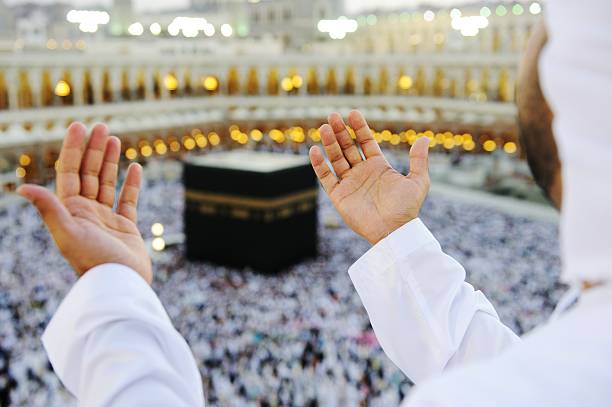By Loushe Jordaan Gilbert
“The call to Hajj is not new, it is already known by Nabi Ebrahim, when Allah (God) ordered him to call people for Hajj.”
Those are the words of Sheik Riad Fataar, the President of the Muslim Judicial Council (MJC) as he spoke to VOC News about the importance of Hajj.
With the blessed month of Dhul Hijjah 1445 AH upon us, thousands of Muslims have embarked on the auspicious journey of Hajj, where they travel to the holy land of Mecca, to complete the fifth pillar of Islam, perceived to be one of the most important journeys in a Muslim’s life.
“Hajj holds great significance as it is a fundamental pillar of the deen of Islam. It represents unity and submission to Allah. It is a journey of purification, forgiveness and spiritual renewal to be performed only for the sake of Allah,” Fataar stressed.
Fataar said there are several requirements that should be met before embarking on this journey, such as planning and preparation in terms of the spiritual, physical, knowledge and financial aspects.
“The day you make your Niya (intention) to go on Hajj is the day you start preparing yourself for Hajj. As Muslims we know that our actions are judged based on our intentions. Once you are accredited, prepare yourself spiritually and physically. Be committed in making Salaah (prayer) on time, read your Qur’an (Holy book), and be a servant of Allah by portraying goodness wherever you go and being kind. Preparing physically would require you to exercise, walk regularly, follow a healthy diet,” he added.
Fataar also encouraged prospective Hujjaaj to sign up with accredited Hajj operators to ensure that their hard-earned savings are not taken advantage of.
“It is of great importance to sign up with an accredited Hajj operator, each year we see the scams and our hearts bleed for the many that lose hard earned money, so it is extremely important to sign up with accredited Hajj operated,” he cautioned.
Fataar further shared that signing up for Hajj classes could benefit Hujjaaj.
“At these classes they will share everything you will need to know before embarking on your holy journey. They will tell you about the importance of taking certain vaccines, which is required by law. We become disorientated when in other countries and these classes will tell you the dos and don’ts and how to deal with certain challenges as they arise,” he shared.
Commenting on the financial aspects of Hajj, Fataar noted that the cost of Hajj is extremely expensive and advised prospective Hujaaj to save their monies as opposed to taking out a loan to cover the costs.
“Hajj is a journey each and every one of us yearns to embark on, so it is vital for us to start saving our funds ahead of time as opposed to taking out a loan to cover the cost because Ribah (interest) is not permissible in Islam.” He stressed.
Fataar further added that it is vital to ensure that all your responsibilities are seen to before going on Hajj.
“One cannot go on Hajj when your house is not in order. You must ensure that your children, parents and household are covered before leaving. All financial responsibilities should be covered, and plans should be set in place to ensure that for the duration of your Hajj, everything is seen to,” he shared.
When asked about the importance of forgiveness and how to remain steadfast in your spiritual growth post Hajj, Fataar shared the following.
“Asking maaf (forgiveness) should come naturally, we should practice this in our everyday lives, but be that as it may, you must ask maaf before leaving for the sake of your own spiritual growth, if the person does not accept your maaf, there is nothing you can do but asking maaf is important. How do we expect Allah to accept our shortcomings, if we find it difficult to ask maaf to those we have hurt, be it intentionally or not,” he said.
Fataar further said that those who are unable to perform Hajj, are still able to reap the benefits thereof.
“We can benefit from this holy 10-days of Dhul Hijjah. The first nine days we can make Salaah, recite Qur’anic verses and just try to be better Muslims, the 10th day is obviously Eid Ul Adha. Everything we do during this period should be for the sake of Allah. Everything we do during this period we get rewarded for, because this is a very holy period for us so be kind, ask maaf and stay steadfast in your maker,” he stated.









